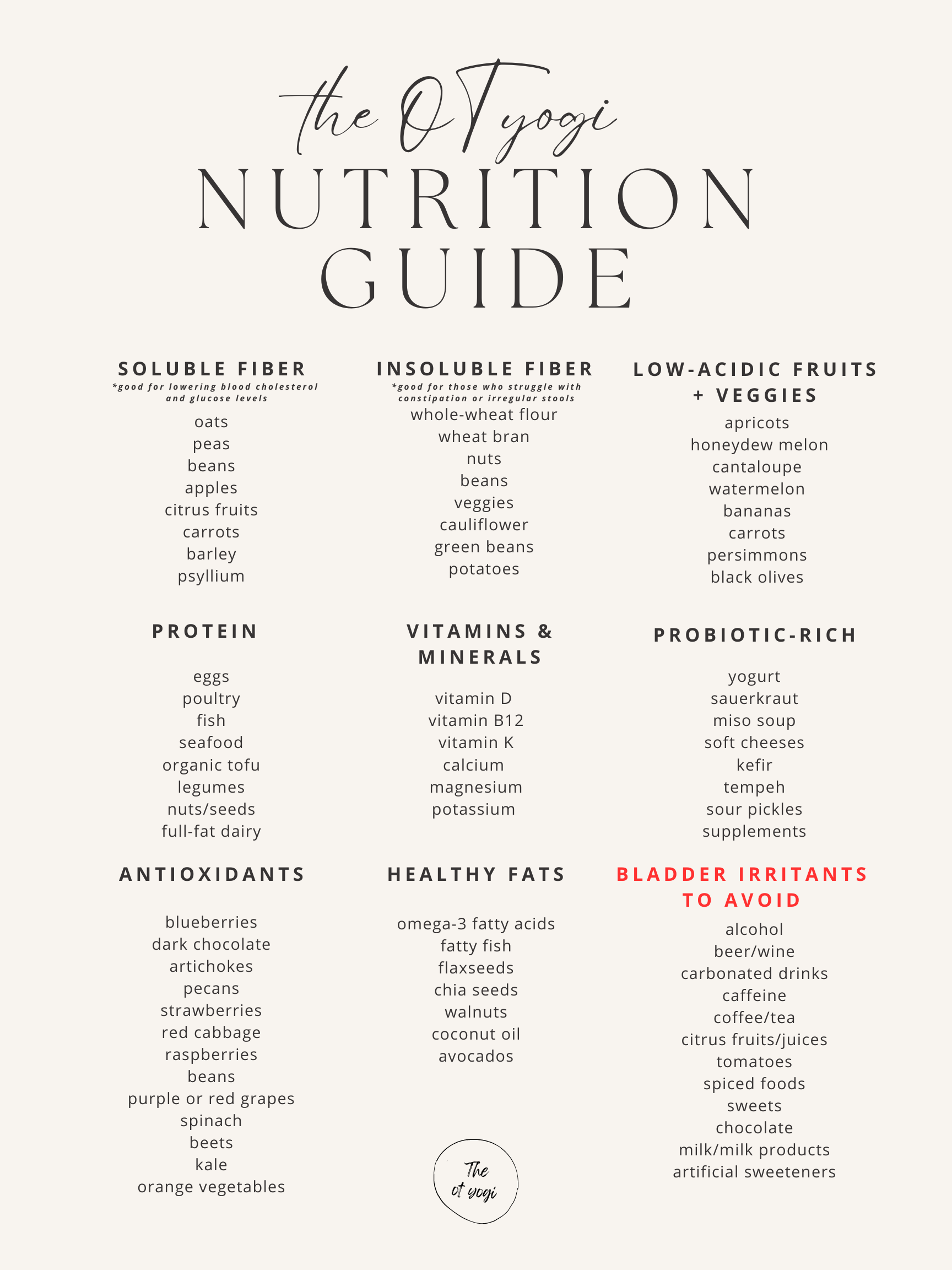Does nutrition play a role on my pelvic floor function??
It is no mystery that the food we put into our bodies plays a crucial role in supporting our health and overall wellness. This is also true regarding our pelvic floor health!
Consuming adequate protein, fiber, and healthy fats through our diet not only helps us to feel satisfied for longer but it also allows our gastrointestinal tract to become more regulated – yes, I’m talking regular bowel movements with good consistency! Interestingly enough, fiber is unlike other food components, meaning they are not digested by the body. They are typically classified as soluble (dissolve in water), or insoluble (doesn't dissolve). Protein intake on the other hand is digested by the body and provides the essential amino acids necessary for muscle repair and growth. Postpartum mama’s, I’m looking at you – small tears in the muscle fibers that occur during labor and delivery rely on protein intake to assist with the repair, strengthening, and rebuilding of these muscle fibers. This is also true for certain vitamins and minerals, including vitamin D, calcium, magnesium, potassium, and probiotic rich foods.
Stay hydrated!
Drinking plenty of water throughout the day can help to support bladder health, reduce the risk of bladder irritation, prevent urinary tract infections, and avoid constipation. It also plays an important role on the overall muscle function and health of the tissues by maintaining tissue elasticity and hydration, electrolyte balance, and removal of metabolic waste products and toxins. Whereas dehydration can affect the pelvic floor muscle function negatively, resulting in muscle contractile capacity, aka, cramps, stiffness, or muscular fatigue.
Now some of you may already be thinking – “trust me Cass, I am constantly drinking fluids, but it causes me to have urinary frequency!” One of the most common discussions I have as a pelvic floor therapist is avoiding certain foods or beverages that may be irritating the bladder lining resulting in urinary urgency and frequency or causing digestive issues such as pain, bloating (increased intra-abdominal pressure), and constipation. The most common irritants which can exacerbate symptoms include caffeine (yes –coffee/tea, energy drinks, chocolate), alcohol, spicy foods, acidic foods, and artificial sweeteners. Start to pay attention or log your food/drink intake along with the time consumed, as well as calculating daily voids. You may begin to identify triggers or correlations between what youre consuming and your symtoms.
Nutrition plays a crucial role in supporting pelvic floor health, as it can influence factors such as muscle strength, tissue integrity, and overall wellness.
Thank you for reading and dont forget to download my nutrition resource guide below!
Cass
Some things to note:
drink ½ body weight in ounces of fluid/ day (2/3 should be water!)
hydrating and adding coconut water or blueberries to your diet are effective natural ways to avoid constipation which will prevent straining on the toilet and limit stress on your pelvic floor.


